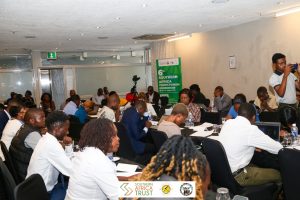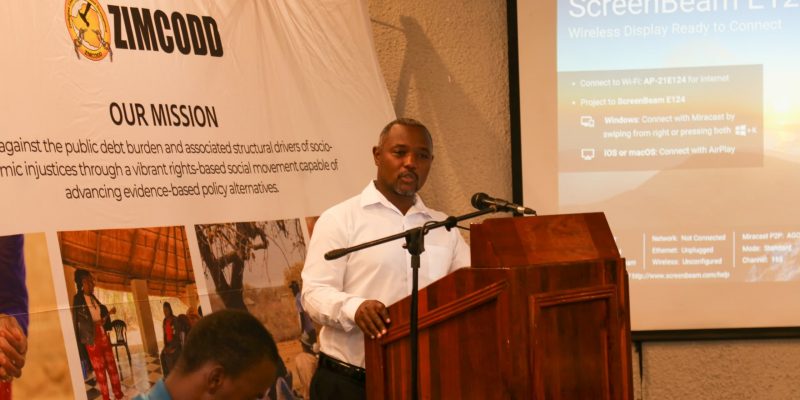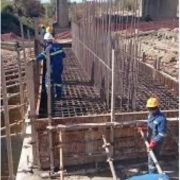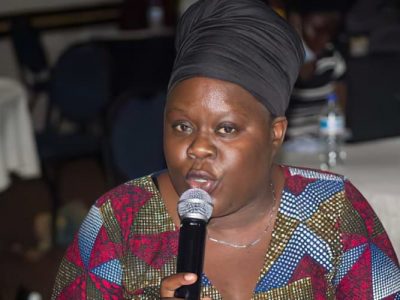In a compelling call to action, non-state actors have been called to broaden the scope of engagement with State Actors to end poverty and inequality within SADC countries. Speaking during a Multi-Stakeholder Dialogue on NSA Participation in the Southern African Development Community (SADC) various speakers emphasized the need for more engagements between Non-State Actors and State Actors.
In her address, Janet Zhou underscored the importance of grassroots participation, urging NSAs to connect and build from the ground up.
“As I have indicated, for this particular activity that we have gathered here for, this is very important for us in our role and contribution to ensuring that non-state actors do participate in the SADC processes,” she said.
She rallied NSAs to focus on sharing knowledge and cross-pollinating ideas in the quest to end poverty and inequality in the SADC region.
“Our main focus is to ensure that the voice that is unusually on the table comes on the table to share experiences, to share solutions that have been co-created together with non-state actors for the SADC regional bloc. We hope that through this, we can reclaim, if I may use that word, SADC for our development, for the people of SADC development, and the eradication of poverty and inequalities,” Zhou added.

In his keynote address , Mr John Maketo, Director of the Zimbabwe Coalition on Debt and Development (ZIMCODD) and Secretary General of the Southern Africa People’s Solidarity Network (SAPSN), highlighted the trust deficit between State Actors and NSAs, which he said posses significant barriers to participation.
“The relationship and engagement between state actors and non-state actors is a bit acrimonious. I want to say as non-state actors, we feel intimidated by state actors. Different protocols have been highlighted here already. The issues of bureaucracy, the lack of trust between non-state and state actors—it is very expensive to engage in programs with state actors,” Maketo explained.
He lamented the high costs of engaging political structures in many SADC countries.
“Engagement comes with a very expensive tag to engage with them—the tone, the settings at which you engage with them. The investment in terms of the communication channels, and the protocols, they come in very expensive. Not just in monetary terms, but even the levels of effort,” Maketo said.
Munetsi Madakufamba, Executive Director of the Southern African Research and Documentation Centre (SARDC), delivered a keynote address urging NSAs to capitalize on opportunities for engagement at the national level, where much of the implementation of SADC policies occurs.
“As we move forward, let us reflect on the following question: How can we strengthen the capacity of stakeholders to engage effectively with SADC processes? How can we ensure that the SADC National Committee is adequately resourced to fulfill this mandate? And when you say the SADC National Committee, don’t look at it as some distant structure. Let’s engage it,” Madakufamba said.
Rangarirai Machemedze, another key speaker, reminded participants that the existence of SADC Protocols, Declarations, and Commitments provides a solid foundation for advocacy. However, he stressed the need for more work between SADC People’s Summits, where NSAs typically engage in advocacy. Machemedze highlighted opportunities for engagement with the Council of Ministers and the Committee of Officials, noting that the SADC Secretariat is gradually opening up to NSAs through increased collaboration with Civil Society Organizations (CSOs).
The dialogue also addressed the current state of NSA participation in SADC processes, identifying gaps and opportunities for engagement. A key finding was that Zimbabwe, South Africa, and Tanzania do not have SADC National Committees (SNCs). Hwange Central Member of Parliament Hon Fortune Daniel Molokele urged Zimbabwean NSAs to engage the Ministry of Foreign Affairs to advocate for the establishment of a local SNC. He also called for NSAs to rethink their reliance on donor funding, particularly in light of recent changes in U.S. foreign aid policies.
“I also want to speak on issues with regards to funding for non-state actors. I think it’s a very big issue of concern. We had a colonial sort of system in terms of funding for non-state civil society, up to now, mostly reliant on Western countries. With the new trend we have seen, starting with these executive orders which have led to the demise of USAID and others, it’s a strong message to us to dismantle the system and to sit down and find ways to be creative and resourceful,” Molokele said.
The event concluded with remarks from former Mabvuku Member of Parliament, Honorable Chidhakwa, who commended the organizers for their efforts. “I think that’s a good step forward for advancing those issues. Ensuring that we have our representatives from persons living with disabilities, the youth, and women—I think that is very critical as well,” he said.
The Multi-Stakeholder Dialogue served as a vital platform for NSAs to reflect on their role in SADC governance and to strategize on how to amplify their voices in the region’s development processes. As the SADC Secretariat continues to open its doors to NSAs, the call for inclusive, grassroots-driven participation has never been more urgent. The event, held in Harare, brought together a diverse group of stakeholders to discuss the role of NSAs in shaping the region’s development agenda








Comments